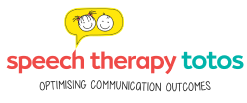Episode 1: My Opinion on How to Find Out If Your Child has Autism
Autism in a child is one of those dreaded diagnoses and understandably so because what is known about autism is sketchy, confusing or alarming and further compounded by the fact that autism apparently has ‘no cure’.
In today’s episode of the My Opinion about…series, I will tackle what is Autism and how to find out if your child has autism.

When parents come into my clinic for a speech and language evaluation of their child experiencing a speech and language delay. I can feel their anxiety about whether or not their child has autism.
When I don’t go out and diagnose their child with autism, they come out straight and ask, “so Jeremy doesn’t have autism?”
I can almost hear the sigh of relief.
While there are some ‘obvious’ signs of autism, it is usually not the best practice to give a diagnosis of ‘autism’ after 1 evaluation. Various factors could have informed whatever features/ characteristics the child displayed.
Some of the factors that could influence your child’s behaviour include:
- Fatigue
- Being hungry
- Fear of new places/ hospitals (if the evaluation took place in a hospital set up) or
- Diet recently consumed (sugary drink/ treat)
I recall an evaluation in which the child I was assessing just seemed to be bouncing off the walls. It was not immediately clear why the child was so energetic.
I could have, after just that evaluation, diagnosed the child with attention deficit and hyperactivity disorder (ADHD). Had I not asked the parents what their child had had for breakfast.
In this case, the little guy had sipped a bit too much of dad’s coffee just prior to our session.
I hope, if nothing else, that this article will illustrate the insignificance of a label or diagnoses of whether your child has autism or not particularly, in Kenya.
In order to determine whether your child is on the autism spectrum, let’s start by defining what autism is.
What is Autism Spectrum Disorders?

Autism or Autism Spectrum Disorder (ASD) is a developmental disorder that affects communication and behaviour.
Autism is referred to as a developmental disorder because symptoms generally appear in the first 2 years of life.
It is referred to as a “spectrum” disorder because there is a wide variation in the type or severity of symptoms people experience.
Children with ASD have varying features or difficulties depending on whether they’re at the low end of the spectrum (severe) or the high end of the spectrum (mild).
They will however share certain features.
Autism is a lifelong developmental disability.
Children or persons with autism present with the following difficulties:
- Social
- Communication
- Language
- Restricted and repetitive patterns of behaviour/ interests
Difficulties experienced by children with autism
Social difficulties
Children with autism may display limited ability to:
- Play with others
- Share toys
- Maintain a common focus on an activity or item with a communication partner
- Understand feelings
Language difficulties
Some of the language difficulties children with autism experience include:
- Difficulty following instructions
- Difficulty understanding and using words
- And difficulty learning how to read and write.
However, some children may find learning how to read relatively easy, but what they may struggle with may be understanding what they have read.
From experience, I have found that a majority of children with autism appear capable of self-teaching themselves how to read. Reading is like a code, which when you crack, you appreciate that the letters correspond to sounds, etc.
Obsessions, restricted and repetitive patterns of behaviours
Children with autism can present with various repetitive behaviours such as:
- Hand flapping
- Rocking
- Echoing/ echolalia (“parroting” what is said eg. Q: How are you?; A: How are you?)
- Excessive touching/ smelling
Other Common Behaviours Displayed
Children with autism tend to share common behaviours such as:
- Low tolerance for certain sounds
- Intolerance for particular foods
- Limited or unusual interests e.g. spinning things, carrying items in hands as they go about their daily activities
- Difficulty changing from one activity to the other
- Limited eye contact.
Often, eye contact seems to be the one feature most parents use to assess whether their child is autistic or not, and this, can often be misleading.

How to Diagnose Autism
In Kenya, there is no standard procedure for diagnosing children with autism. Like, literally, someone could take 1 look at your child and decide they have Autism.
I have encountered so many children who have come to my clinic having been ‘diagnosed’ with autism by a teacher, a nurse, sometimes even a doctor and I just couldn’t see it.
Really.
You see, I have seen so many children present with traits that are ‘autistic’, but turn out not to actually have autism, but more ‘understimulation’ more than anything.
Diagnoses of Autism around the World
One of the widely accepted guide is called the Diagnostic and Statistical Manual of Mental Disorders (DSM-5), developed by the American Psychiatric Association.
Countries such as US, UK, Australia, New Zealand, etc. have had to agree on a way to diagnose persons with Autism as these countries usually offer support to families with children with Autism to ease access to services, etc.
Therefore, it was important that they figured out an inclusion or exclusion criteria. If you will, for allocating the resources they do to persons diagnosed with Autism.
In Australia for example, the diagnosis for Autism for children is made by the paediatrician in consultation with the psychologist and speech therapist.
So, both the speech therapist and the psychologist carry out their independent assessments after the paediatrician’s initial assessment. And, communicate their findings with the paediatrician who eventually makes the final call.
Diagnoses in Kenya
In Kenya, this is definitely not the case.
There is no consensus on the diagnostic procedure for diagnosing persons with Autism.
There is no set standard.
You see if someone saw your child after a long day or a long wait in the reception, hungry, tired, etc., the child may act unusually. Which, may cause the examiner to see a severity of a worrisome trait and make the call.
What I say to parents is, more than the label, it is better to evaluate or document the symptoms and weaknesses in language or social skills and target these in therapy.
Besides, the label in itself has no relevance.
If the reason you are seeking a label is because your child is displaying delayed language skills, then whether someone gives your child a label or not, your child will still require intervention. Be it speech therapy, behavioural therapy, occupational therapy, educational support, etc.
I have parents who are desperate to know whether their child is autistic or not and I tell them it really isn’t important.
Unlike in some Western countries where the label qualifies you for service. A label could mean the difference between your child receiving much needed say, speech therapy or whatever early intervention the child may require…
In Kenya however, the label is just that and actually, in some cases it can earn you a stigma.
Some schools will deny your child admission if you disclose that they have an autism diagnosis.
The good news is, autistic children do end up speaking, communicating and functioning quite well if the right intervention is given and at the right time.
I should know.
I know so many autistic children , who we have offered speech therapy to and who are communicating unimaginably well.
What you should do if you suspect your child has autism
If you happen to suspect autism or you have a child with delayed language skills at 2 years of age, it is best to consult with a speech-language therapist, a developmental paediatrician or a paediatric neurologist (see this article to learn what a paediatric neurologist does).
This Autism Screening Questionnaire will also let you know whether your child who is between 16 and 30 months of age needs a further evaluation.
Parents ought to act early as early intervention holds the key to optimising communication outcomes not only for children with speech and language difficulties, but also those with autism.
The common advice given to a lot of parents with children with delayed language skills is that they should ‘give them time’.
This advice, though coming from well meaning friends, relatives or even professionals can rob a child of an early intervention opportunity that would have significantly improved the child’s outcomes.
The advice to ‘give your child’ time can rob your child of an early intervention opportunity that would have significantly improved the outcomes for your child. – Lorna Muthamia-Ochido
Another common advice given when a child is suspected to be autistic, is to restrict a child’s diet, which isn’t always the solution (see what my opinion is about Autism Diet).
I hope this series about whether your child has autism has shed some light on this topic.
Do checkout the rest of the series.








